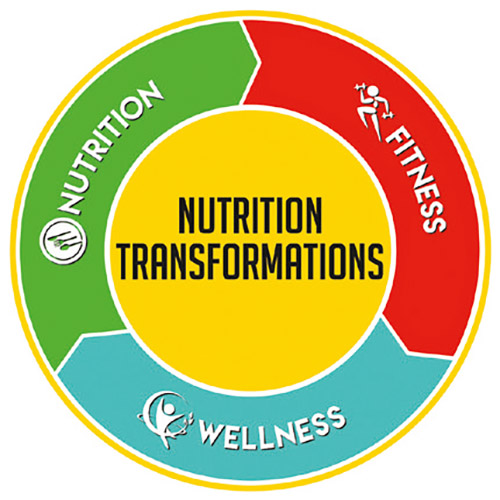
Dear Jenn,
I am a 68-year-old woman, married, retired, and enjoying family. I’m overweight and borderline diabetic. My doctor strongly advised me to lose weight, exercise and control my blood sugar. I’ve been trying to cut back on my eating but I’m neither athletic nor motivated to exercise. I have never taken out a gym membership. How can I start exercising at my age?
Sincerely,

Not an Exerciser
Dear Not an Exerciser,
It is true diet and exercise go together for weight loss and diabetic control. Being overweight, not controlling diet and being physically inactive is a landslide into poor health. Your pre-diabetic condition is at risk to get worse; in addition, other comorbidities can become troublesome.
Let’s Address Diet:

To lose weight you need to reduce caloric intake and control portion sizes. When reducing calories, it is important to consume foods high in nutrient value, while being calorically wise, for example: eating non-starchy vegetables (liberal intake allowed) and/or fruits (2-3 daily especially, with diabetes.) In a pre-diabetic state, it is important to carefully and strategically control carbohydrate intake.
Role of Carbohydrates in the Body:
Carbohydrates are broken down to glucose in our bodies. Glucose is the energy source the body uses for our organs to function, the brain to think and for us to have fun! If you consume a high-carbohydrate diet, the pancreas will not be able to provide adequate insulin for cells to absorb the high blood glucose. To rid excess blood glucose, the kidneys excrete it in the urine. Having glucose in the urine is associated with diabetes. With long-term high blood sugar, insulin may not be as effective, body cell response diminished and the kidneys overworked—NOT GOOD!
Types of Carbohydrates in the Diet:
Simple Sugars: Table sugar, candy, honey and fruit juices. When consumed, blood glucose rises quickly and insulin responds to the rise in blood glucose.
Complex Carbohydrates: Breads, pasta, rice and starchy vegetables. These carbohydrates are digested and metabolized more slowly, therefore insulin response is slower.
Fiber: Non-digestible carbohydrates that clean waste products from our GI tract.
Alcohol Sugar: The insulin response is rapid; the sugar is non-nutritive and high in calories
(7 calories/gram).
Other Nutrition Factors to Consider:
Diabetics are more prone to heart disease and vascular disorders. *Recommendation: Consume proteins such as lean meats, skinless poultry and fish. An egg-white omelet with lowfat cheese is the way to go! Keep unhealthy fats such as; trans fats, margarine, high-caloric fat dressings and sauces to a minimum. *Recommendation: Consume healthy fats like olive oil, safflower oil and avocado.
*NOTE: Fats are caloric (9 calories /gram as compared to carbohydrates and proteins which are 4 calories/grams.) Neither proteins nor fats raise blood glucose.
Weight Loss:
The goal in weight loss is to lose excess body fat and spare body protein. Therefore, consume adequate protein. Through a series of complicated metabolic pathways, fat leaves the body via skin (sweat), kidneys (urine) and lungs (breathing out carbon dioxide.) You may lose weight by cutting back on carbohydrates, however, you can still shed pounds by adjusting the carbohydrates eaten *Recommendation: Avoid simple carbohydrates and consume more complex carbohydrates (see above definitions) in moderation. This strategy will provide for long-term energy and blood sugar control, and not cause weight gain.
Exercise for Health and Blood Sugar Control:
Exercise and good health go together! Kick-start metabolism with exercise, allowing nutrients to be utilized efficiently, including glucose. Regular exercise reduces blood sugar and helps to control diabetes along with proper diet. In addition, exercise:
Builds muscle and burns fat.
Keeps cardiovascular and skeletal systems healthy.
Keeps the body-fit and strong.
Makes us feel great!
Not an Exercise Type?
It is never too late to learn how to exercise and eat healthy; it is a matter of mindset and desire!
How to Start?
WALK for 15 minutes daily or five minutes three times a day. Find the time; you are retired. It is a beginning and a good start. Invite a friend and walk together or walk alone and listen to inspiring music. Build your ability to walk longer and increase your pace incrementally. Come on, try—you can do it!
Conclusion:
Diet and exercise make a big impact on health, control of disease states and longevity. Aging healthily is what it’s all about! At Nutrition Transformations we understand that change can be challenging but it is possible. Lose excess weight, improve your diet, learn to exercise and do it consistently; you will better your life! Nutrition Transformations will show you the way.
Give us a call today—we will do it together!
Yours in good health,
Jenn
718-644-1387
See out new blog at:









